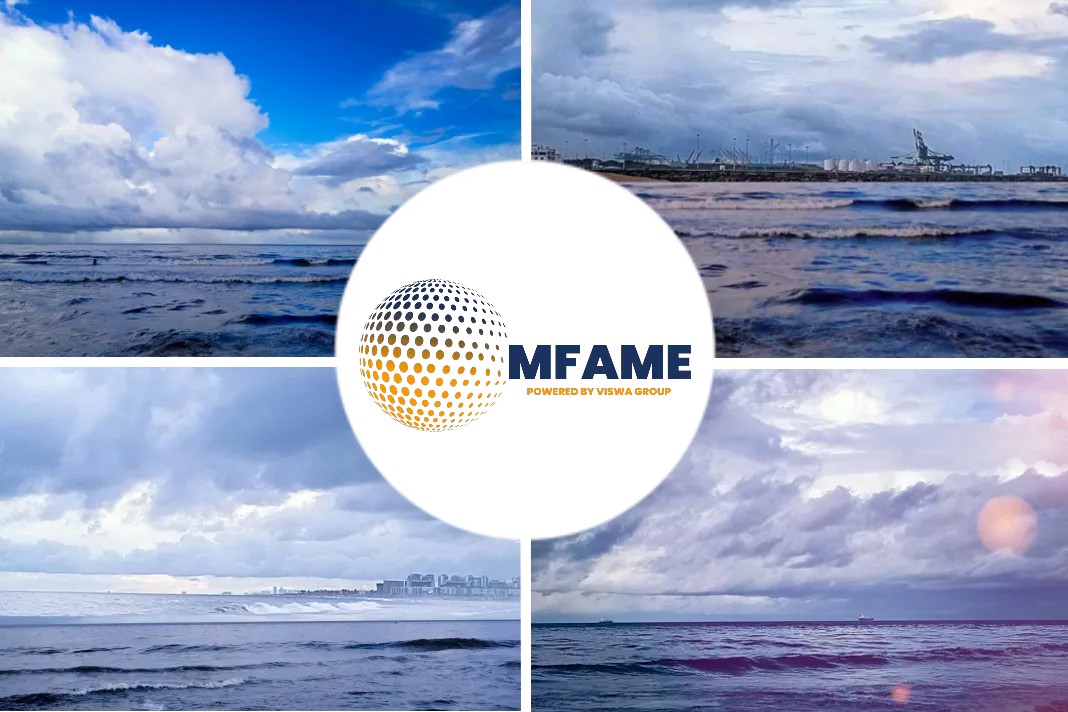
EU sanctions target Russian STS transfers and ships that turn off AIS, states a Riviera news source.
European Union’s (EU) 11th round of sanctions
The European Union’s (EU) 11th round of sanctions includes a port ban on tankers engaging in ship-to-ship oil transfers or ’going dark’.
The latest tranche of sanctions from the EU includes provisions for shipping including a port ban on tankers engaging in ship-to-ship (STS) transfers of Russian oil at sea. The sanctions expand on a recently adopted Spanish law enforcement policy across Europe.
Citing a “sharp increase of deceptive practices by vessels transporting crude oil and petroleum products,” the Council has decided to prohibit access to EU ports and locks to any vessels that engage in ship-to-ship transfers, if authorities have reasonable cause to suspect that the vessel is either in breach of the ban on importing seaborne Russian crude and petroleum products into the EU, or is transporting these products purchased above the price cap agreed upon by the EU.”
STS transfers allow smaller tankers serving the Baltic ports to transload their cargo to VLCCs. The method can obscure the cargo’s origins, especially when ships ‘go dark’ – turning off satellite transponders or obfuscating location by other means – to circumvent sanctions and high insurance costs.
The practice has prompted concern from many in the industry and has been flagged for discussion within IMO through submissions from member states.
The EU prohibition will also apply where authorities suspect vessels switch off or otherwise disable their navigation system when transporting Russian crude and petroleum products.
“We are therefore introducing a prohibition to access EU ports for vessels which are transporting Russian oil and have conducted ship–to-ship transfers or turned off their AIS navigation systems during the voyage to a Member State, giving reasons to suspect a breach of our restrictions. We are also prohibiting access to EU ports if a vessel does not notify the competent authority at least 48 hours in advance about a ship-to-ship transfer occurring within the Exclusive Economic Zone of a Member State or within 12 nautical miles from the baseline of that Member State’s coast,” the EU said in a Q&A published on the European Commission website.
The Q&A, published on 23 June
The Q&A, published on 23 June, adds clarity to the new ban on STS transfers and so-called ’dark fleet’ activity in and around EU waters.
“We want to counter the increase of deceptive practices by vessels transporting Russian crude oil and petroleum products which aim to hide the origin of the oil and circumvent our import ban and price cap on the transport and services to third countries. These practices, which include ship-to-ship transfers of oil and petroleum products, also create environmental risks near our coasts,” the EU said.
Europe reportedly continues to be major destination for Russian crude and LNG via alternative trade routes, despite sanctions. According to data from analytics firm Kpler, India, which is still taking shipments of Russian energy, has surpassed Saudi Arabia to become Europe’s largest supplier of refined fuels. Shipments to the Netherlands, for example, have climbed by 70% for the fiscal year 2022.
Data from India’s Ministry of Commerce
Data from India’s Ministry of Commerce (as of March 2023) shows the EU is the top destination for Indian petroleum products accounting for US$1.51Bn, well ahead of the UAE and Togo.
Other measures adopted by the 11th sanctions package that might affect ports include a prohibition on transporting goods into the EU by Russia-registered road to trailers and semi-trailers registered in Russia, including when hauled by trucks registered outside of Russia.
Finally, the 11th sanctions package has ended the temporary derogation granted to Germany and Poland for the supply of crude oil from Russia through the northern section of the Druzhba oil pipeline. However, oil which originates in Kazakhstan or another third country will be able to continue to transit through Russia and be imported into the EU via the Druzhba oil pipeline.
Did you subscribe to our newsletter?
It’s free! Click here to subscribe!
Source: Riviera





















